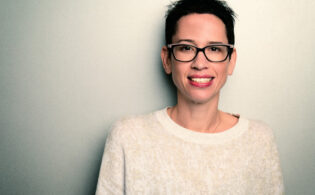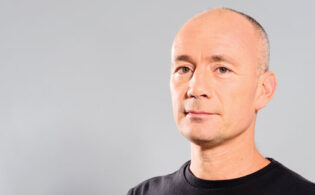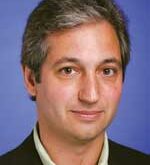Israel’s Keshet Media Group gained programming expertise from operating a franchise of Channel 2 and used it to build a thriving international business. Led by CEO Avi Nir, Keshet has supplied formats and finished programs to networks around the world. It has also set up production hubs and sales offices in the U.S., the U.K., Asia and Latin America. Nir talks to World Screen about Keshet’s growth trajectory and its commitment to innovation and strategic risk-taking.
WS: How have you guided Keshet’s growth in the last few years?
NIR: I have looked for a word that describes who we are, what we are, and what we believe in, and the one word I have found is “agility.” I think that is the strategy—growing while remaining agile, which means being innovative and creative but at the same time relying on organic growth and innovation. We have evolved and created hubs throughout the world that didn’t exist when we created Homeland [based on Israel’s Hatufim]. Now we have original shows coming out of the U.K., the U.S., Latin America and the Far East. We are a small organization but growing very fast, and we’re always keeping our hunger, agility and—this is an important word—desire to be disruptive and to maintain our independence. One of our strategic advantages is that we’ve maintained this kind of independence in a world of huge international companies that have grown even bigger in the last six years. We are constantly striving to maintain a creative edge. We have great people in Israel, but not only in Israel. Also, we have no boundaries. We have gone into gaming, interactive and VR. Whenever we find something that inspires us, we’ll go out and get it.
WS: You have a lot in development in the U.S.
NIR: For God and Country, [a military drama] for NBC, produced by Keshet Studios and Universal Television and a great creator, Dean Georgaris, is really close to my heart. For a few years, I have been watching a genre of very successful movies in the vein of American Sniper and Sicario—these believable, hardcore movies about true grit. What Dean has come up with, with Rachel [Kaplan], is a show that brings this genre to television.
The second show is a Hagai Levi project that will be shot in Israel, mostly in Hebrew. It deals with the Arab-Israeli conflict. There isn’t a better group in the world than Hagai Levi, Noah Stollman, Peter Traugott and Rachel Kaplan to bring this unique project to life under the great auspices of HBO. It’s political, it’s legal, it’s human and, in this day and age when we are facing hate crimes and extreme politics, it’s timely. We’re very happy with our deal with NBC. Keshet Studios is working on an incredible number of scripted projects for cable and broadcast networks.
WS: What lessons have you learned about the types of content that can travel?
NIR: Simply put, great stuff travels! People around the world are watching Keshet’s original shows, even without dubbing, and they can appreciate them. Ten years ago, the notion was that cultural nuances would overshadow a story and limit its ability to travel. What we have learned now is that, maybe like Thomas Friedman said, the world is flat, in the sense that moving, personal stories with great characters travel, even if they are deeply rooted in local cultures, local dilemmas and local affairs. 2016 was a record year in development—both scripted and unscripted. In Israel, we had about 14 new prime-time shows. And in 2017 we will have about 20 new shows. This is in part because in 2018 we will have our own channel in Israel instead of sharing a channel with Reshet. We will have more real estate, and unlike other companies that rely heavily on international programs, I think our vision—and this is another strategy that is very rooted in Keshet—is that we want to rely on our own content. We don’t want more than 30 or 35 percent of the schedule to be acquired programming. We aim for dominance in original content, both as an international company and as an Israeli company.
WS: Keshet has always had very much a “can-do” attitude in business and a willingness to take risks. How have you preserved this attitude even as the company has gotten bigger?
NIR: We are here to create and innovate—not just to be very successful and safe on the business side. I am responsible for the P&L of the whole company. I take full responsibility for innovation and risk-taking. Whether it works or not, it’s my responsibility, and I will own up to it. I think this encourages other people in the company to say, Yes we can, yes we dare, yes we can take a chance.
Alon Shtruzman, who heads Keshet International, has a very strong vision and can hire the most talented people and take risks. He knows that he has my total backing, and he does incredible work knowing that at the end of the day, we support each other; we are ready to face success and failure. If you are into this and believe in your vision, you will have more success than failure.



